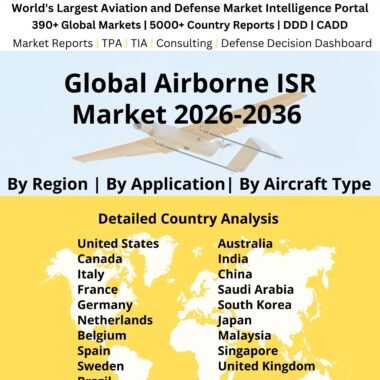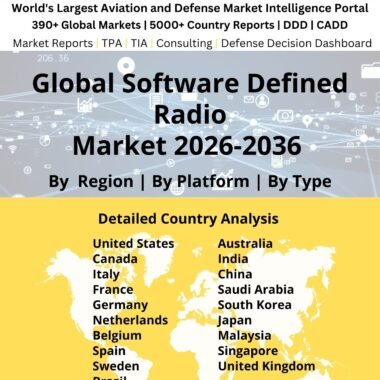Description
About
In order to guarantee the dependability, functionality, and interoperability of communication equipment utilized in contemporary aerospace, defense, and other high-reliability industries, global communication Line Replaceable Unit (LRU) test methods are essential. Specialized instruments called LRU Test Systems are employed to verify these units’ dependability, performance, and functionality. These systems are essential for maintaining the effectiveness and safety of numerous businesses.
To ensure that these units are operationally ready in critical contexts, specialized platforms called LRU test systems are utilized to assess, diagnose, and validate their performance.
Types of LRU Test Systems:
LRU Test Systems can be divided into groups according to their use and level of complexity:
Modular Test Systems: To test various LRUs, these systems are constructed using easily reconfigurable modular components. They provide scalability and flexibility.
Dedicated Test Systems: These systems are made for individual LRUs and are tailored to meet their unique needs. They frequently offer improved accuracy and performance.
HIL Test Systems: Without requiring actual hardware, hardware-in-the-loop (HIL) test systems can conduct thorough testing by simulating the real-world environment of an LRU.
Extensive Testing Capabilities
LRU test systems perform many types of tests. They check function, performance, environmental strength, and diagnostics. These systems confirm that communication units meet all required standards. They also make sure the units work in harsh conditions. In addition, they detect faults before deployment. As a result, companies avoid costly failures later. This level of testing is critical in aerospace, defense, and other high-risk industries. Furthermore, repeated testing improves long-term dependability. It also helps engineers verify system stability under continuous operation. Because of this broad coverage, manufacturers gain strong confidence in product quality before release.
Modular Design
LRU test systems use a modular structure. Engineers can easily adjust the setup based on the device under test. For example, they can add or remove modules for transceivers, antennas, processors, or power units. Because of this flexibility, companies reduce upgrade costs. Moreover, modular systems grow with new technology. Therefore, they remain useful for many years. In addition, modular architecture simplifies maintenance and replacement. If one module fails, technicians can replace it quickly without changing the whole system. This design also supports scalability for both small and large testing requirements.
Advanced Communication Protocol Support
Modern LRU test systems support many communication protocols. These include Ethernet, CAN, ARINC 429, and MIL-STD-1553. This wide support allows engineers to test many device types. As a result, companies ensure smooth integration into larger systems. Furthermore, multi-protocol support prepares manufacturers for future standards. It also reduces the need for multiple separate test platforms. Because industries use different communication standards, this flexibility becomes highly valuable. In turn, companies save both time and operational costs.
Automated Testing
Automation improves speed and accuracy. LRU systems run test scripts automatically. They collect data, detect errors, and generate reports. Because of automation, companies reduce human mistakes. In addition, they increase productivity. Faster testing also shortens product development time. Therefore, companies can launch products sooner. Automated systems also ensure consistent test results across multiple cycles. This repeatability strengthens quality assurance processes. Moreover, automated reporting improves documentation and regulatory compliance.
Environmental Stress Testing
LRU systems simulate extreme environments. They create high and low temperatures, vibration, humidity, and electromagnetic interference. This process ensures the device works in real-world conditions. For example, aircraft and military equipment face extreme stress daily. By testing early, companies improve durability and safety. In addition, stress testing reveals hidden weaknesses in design. Engineers can then refine components before mass production. Consequently, products achieve longer service life and better field performance.
Defense and Aerospace Applications
Defense and aerospace industries rely heavily on LRU testing. Engineers test communication hardware used in aircraft, satellites, and military vehicles. These tests ensure compliance with strict industry standards. As a result, systems perform reliably during missions. Most importantly, proper testing protects lives and national security. In addition, certified testing supports defense contract approvals. Governments demand strict validation before equipment deployment. Therefore, LRU testing plays a strategic role in mission success.
Telecommunications Applications
Telecom companies use LRU systems to test routers and base stations. These tests ensure stable and fast communication networks. In addition, testing improves signal quality and reduces downtime. Because networks support millions of users, reliability is essential. Therefore, LRU testing plays a major role in daily communication. It also supports the rollout of new technologies such as high-speed broadband and 5G networks. Furthermore, thorough testing prevents large-scale service interruptions.
Automobile Sector Applications
The automotive industry uses LRU testing for connected vehicles. Engineers test infotainment systems, ADAS modules, and vehicle communication units. As cars become smarter, communication reliability becomes more important. Therefore, manufacturers must test every module carefully. This process improves safety and driver experience. In addition, reliable communication supports autonomous driving functions. It also ensures seamless vehicle-to-vehicle and vehicle-to-infrastructure interaction. Consequently, LRU testing strengthens modern automotive innovation.
Maritime and Rail Applications
Maritime and rail systems depend on stable onboard communication. LRU test systems verify these devices before installation. Since trains and ships operate in harsh environments, durability matters greatly. In turn, reliable testing ensures passenger safety and smooth operations. Moreover, communication systems coordinate navigation and safety alerts. Any failure can disrupt operations significantly. Therefore, rigorous testing reduces operational risks and enhances system reliability.
Better Product Quality
Thorough testing improves product quality. Engineers detect problems early in development. As a result, fewer defects reach customers. This approach builds trust and strengthens brand reputation. In addition, high-quality products reduce warranty claims. Companies also gain competitive advantage through consistent performance. Over time, strong quality standards support long-term business growth.
Faster Time-to-Market
Efficient testing speeds up development. Automated systems complete tests quickly and accurately. Consequently, companies reduce delays. Faster launches also improve market competitiveness. In addition, streamlined testing minimizes redesign cycles. Engineers receive quick feedback and adjust designs promptly. Therefore, organizations respond faster to market demands.
Reduced Maintenance Costs
Early fault detection lowers repair costs. Companies fix issues before deployment. Therefore, they reduce downtime and warranty claims. Over time, this saves money and resources. In addition, reliable products require fewer service interventions. Maintenance teams spend less time troubleshooting communication failures. As a result, lifecycle management becomes more efficient.
Improved Product Reliability
Reliable testing ensures stable long-term performance. Engineers expose devices to real-world stress conditions. As a result, they fix weaknesses before release. This process increases overall system reliability. Furthermore, consistent validation reduces unexpected breakdowns. Customers gain confidence in the product’s durability. Consequently, companies strengthen their market reputation.
Enhanced Safety
Reliable LRUs improve system safety. This is especially important in aerospace, automotive, and defense sectors. When communication systems work correctly, risks decrease significantly. Therefore, proper testing directly protects people and assets. In addition, safety compliance supports regulatory approval. Strong validation procedures also reduce accident risks in critical environments.
Device Complexity Challenges
Modern communication devices are highly complex. They combine many functions in small units. Because of this complexity, test systems must also be advanced. Engineers must constantly update tools and methods. In addition, compact designs make troubleshooting more difficult. Therefore, companies invest in smarter diagnostic tools. Continuous improvement remains essential to manage complexity.
Rapid Technological Change
Technology evolves quickly. New standards and protocols appear often. Therefore, LRU test systems must adapt fast. Keeping up with innovation requires continuous upgrades and skilled teams. In addition, companies must train staff regularly. Without updates, test systems may become outdated. Consequently, staying current ensures accurate validation.
Time and Cost Constraints
Comprehensive testing requires time and money. Advanced equipment and trained staff increase costs. However, companies must balance quality and budget. Efficient test strategies help solve this challenge. In addition, automation reduces long-term operational expenses. Smart planning also improves resource allocation. Therefore, organizations focus on cost-effective testing models.
Compatibility and Integration Issues
Different industries use different hardware and software platforms. Therefore, ensuring compatibility can be difficult. LRU systems must integrate smoothly into existing workflows. Standardization helps reduce integration problems. In addition, interoperability testing improves system harmony. Seamless integration increases productivity and reduces delays. Consequently, companies achieve smoother operations.
AI and Machine Learning Integration
Engineers now integrate AI and machine learning into LRU systems. These technologies analyze large data sets quickly. They also detect patterns and predict failures. As a result, companies improve accuracy and reduce manual effort. In addition, predictive analytics supports proactive maintenance. AI tools also speed up root cause analysis. Therefore, intelligent testing enhances overall efficiency.
Digital Twin Technology
Digital twins create virtual copies of devices. Engineers test these copies in simulated environments. This approach reduces the need for physical prototypes. In addition, it speeds up development and lowers costs. Virtual testing also allows engineers to evaluate multiple design scenarios quickly. Consequently, product optimization becomes more efficient.
5G and Future Communication Standards
5G technology increases speed and connectivity demands. Therefore, LRU test systems must support higher data rates and lower latency. Companies must prepare for future communication standards as well. Advanced testing ensures readiness for next-generation networks. In addition, evolving standards require flexible test platforms. Continuous adaptation keeps systems future-ready.
Cloud-Based Solutions
Cloud-based testing enables remote access and data sharing. Teams across locations can collaborate easily. Moreover, companies reduce dependence on physical labs. This flexibility improves efficiency and scalability. In addition, centralized data storage enhances traceability and reporting. Cloud integration also supports global engineering teams.
Conclusion
LRU test systems ensure quality, safety, and reliability. They support industries that depend on strong communication systems. As technology advances, these systems will continue to evolve. Ultimately, they remain essential for modern infrastructure and innovation. In addition, continuous improvements will drive smarter and faster validation methods. Therefore, LRU test systems will remain a key pillar of advanced communication ecosystems.




